Text
My reflective Journey
Blog 4
The community block of my journey has been a profound chapter, where the boundaries of clinical practice blurred, and the true essence of holistic care came to life. In this final addition to my series of blogs, I take you on my reflective course, inviting you to join me on a journey through the moments, challenges, and triumphs that have shaped my experiences in this semester. The block's experience prompted a refreshing shift in perspective, propelling the occupational therapist in me beyond the boundaries of conventional therapeutic paradigms. It compelled a reevaluation of the lens through which clients are perceived – no longer as mere cases or diagnoses, but as intricate beings whose struggles manifest in physical, mental, or emotional dimensions. This transformative shift led to a departure from the clinical cocoon, inviting the emergence of a community-based OT who not only identifies problems but also crafts solutions tailored to the context of each individual's life.
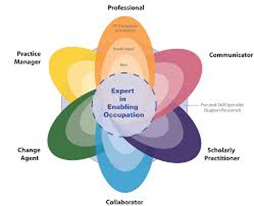
Holistic roles of an OT (Taken from Contact Us OT Program, 2019).
What has become most apparent is that as much as I have a role to play in assisting people with physical problems- the autistic child, the immobile gogo- I have a strong role to play in dealing with the injustices that have become a cemented structure of society.
Marginalized communities are in desperate need of getting their plights highlighted by people in a position of power. Now I may not be a policy maker, but I have learned that, by collaborating, I can certainly work towards changing laws to favor marginalized people. This block has given me experiences that have illuminated the profound importance of cultural competence and empathy in shaping effective person-centered care. I have come to realize that a one-size-fits-all approach in OT is not only inadequate but can be detrimental to those I serve. Through genuine curiosity and open-hearted conversations, it becomes apparent, the differences in cultural contexts, values, and beliefs. I have also found distinct differences in race groups regarding things like prayer and ancestral knowledge. By integrating cultural insights into treatment plans, I am better equipped to tailor interventions that resonate deeply, and motivate clients as they work towards their desired outcomes.
"The capacity to learn is a gift; the ability to learn is a skill; the willingness to learn is a choice." - Brian Herbert (taken from Clark, 2016).
Before I entered community block, I was pretty confident that, by virtue of me being in my final year, I was completely equipped to deal with clients. However, I now gracefully embraced the concept of continuous learning, recognizing that each experience contributes to my growth as an OT. With each experience, I gained insights into the intricate nuances of human behavior, challenges, and aspirations. Whether it's witnessing small triumphs like a stroke client lifting a glass of water or connecting on a profound emotional level during therapy sessions, every moment adds to my reservoir of knowledge.
Another warped perception that got clarity is the fact that I can work in a silo! I’ve come to realize that my impact is amplified when I forge strong partnerships with colleagues from various fields– be it psychologists, social workers, or educators. Given the prevalence of complex societal issues such as poverty and unequal access to resources, teaming up with other professionals empowers occupational therapists to address the multifaceted needs of clients. These collaborations may strengthen my ability to provide impactful care and contribute to a united effort in advancing the overall well-being and quality of life of South Africa’s diverse population.
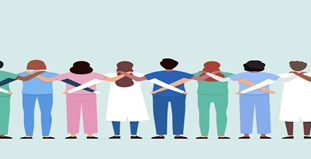
Collaboration is the key to effective health solutions.
I have always loved and admired Africa and its people, but I must draw on how our continent opened me to two concepts in this block that has led to my philosophical growth: Ubuntu and Sankofa. Embracing Ubuntu's emphasis on communal well-being enhanced my ability to understand clients holistically within the context of interconnected relationships. In my reflection on Sankofa's principle of learning from the past (Slater, 2019), I drew on historically relevant stories that had the utmost impact on my clinical practice as I discussed in my previous blog.
Beyond the realms of practice, this block resonated deeply with a foundational aspect of humanity – the act of giving to those in need. The juxtaposition of witnessing children in challenging conditions sparked an internal fire, a burning desire to create positive change. The essence of being "for the people" was palpable, urging the therapist in me to transcend their immediate environment and contribute to a broader narrative of empowerment and transformation. It underscored the responsibility to be a part of the change, to repurpose what may seem insignificant, into tools of growth, and to nurture the potential of every individual, regardless of their circumstances.
It would be dishonest for me to leave this out of my reflections of this block, for its narrative may serve to inspire a person reading this. Overwhelmed and burdened in the second week of this semester, I found myself teetering on the edge of surrender, the weight of the world making it nearly impossible to take another step. I observed the poignant consequences of self-neglect – lack of nutritious food, minimal sleep a sense of giving up - a paradox that resonated deeply considering the advocacy I extend to my clients. This revelation sparked a profound shift in perspective, resulting in an increased appreciation for the intricate balance between caring for others and safeguarding one's well-being.
The irony of neglecting self-care while fervently advocating for it in therapeutic contexts served as a powerful lesson – an eloquent reminder that an empty vessel cannot pour into another. This newfound insight unveiled the undeniable truth that nurturing one's physical and mental health isn't just a choice but a pivotal necessity, especially when entrusted with the responsibility of guiding others toward their own well-being. The resonance of this lesson echoes within my mind and serves as a constant reminder.
My religious beliefs, deeply ingrained and unwavering have illuminated a profound pathway within me - one of giving to those in need and cherishing the blessings received. These principles, so deeply rooted in my faith, found their dramatic expression during this block. The stark reality of witnessing children residing in crèches amidst conditions unfit for any human existence was a heartrending revelation that imprinted itself upon my consciousness. This experience invoked a resolute determination to transcend complacency and actively pursue positive change in whichever small way possible. This could even include exposing these children to hope and wonder through small fun and creative play. Sensory play can be made fun and cost-effective using sand and water to indulge a child’s tactile sense. Sensory play has a multitude of benefits such as being good for cognitive development, and fine and gross motor skills. (Kan, 2022)

As I step beyond the boundaries of this community block, I carry with me a commitment to be an advocate for positive change, a beacon of empowerment, and a source of transformation for the clients I treat. This chapter has not merely shaped my path as a future occupational therapist; it has illuminated my purpose and kindled a fire within me to continue forging a trail of meaningful impact, one person, one community, and one therapeutic endeavor at a time.
Reference List
Clarke, R. J. (2016). Sayings and Their Meanings. Createspace Independent Publishing Platform.
Contact Us Occupational Therapy Program MScOT Program UNIVERSITY OF ALBERTA DEPARTMENT OF OCCU PAT IO NA L TH ER A PY. (2019). Available on: https://www.ualberta.ca/occupational-therapy/media-library/documents/mscot-scholarstreamremoved-june-15-2019-for-viewing.pdf
Slater, J. (2019). Sankofa—the need to turn back to move forward: Addressing reconstruction challenges that face Africa and South Africa today. Studia Historiae Ecclesiasticae, 45(1), 1-24.Available at: http://www.scielo.org.za/scielo.php?script=sci_arttext&pid=S1017-04992019000100003
Kan, K. (2022, January 12). Benefits of sensory play for preschoolers (with free printables). HiMama Blog - Resources for Daycare Centers. https://www.himama.com/blog/sensory-play-benefits-for-preschoolers/
1 note
·
View note
Text
Nurturing Hope: Embracing Sustainable Development Goals in South Africa
South Africa, a land of breathtaking landscapes and cultures, has danced through history, overcoming adversity and embracing change. As we gather under the vibrant sun that warms this country, I want to share with you a personal journey – a journey that holds the promise of changing lives, enriching communities, and leaving a lasting mark on the world we live in. As an OT, my mission extends beyond the walls of a clinic or a therapy room; it consists of a vision of creating meaningful change and maintaining the holistic well-being of people in the community I offer services to. What is the vehicle for this transformative journey you may ask? The Sustainable Development Goals (SDGs). I invite you to join me on this mission where I explore five SDGs that require my input and contribution as an OT.

Figure 1: SDG 1-17 (According to the United Nations (2015)
As I take strides in my final year of study I realize, more and more how much I have worked towards SDG 3, good health and well-being, and how it will underpin my practice as an OT throughout my career. OTs contribute to preventing illness, supporting rehabilitation, and addressing mental health issues. In the community, initially, it was quite difficult to adjust one’s thinking into a community therapist mindset as we were so used to working in hospitals with diagnosed conditions and thorough history reports. This module has forced me out of my comfort zone and changed my thinking to be more critical and this resulted in the thought that not all problems may be seen through a textbook condition because real people have real problems which are multi-dimensional and layered. Asking the right questions, asking enough questions, and being comprehensive are some of the characteristics needed to ensure one is considering the person as a whole and seeing to the health and well-being of a person.
In managing chronic conditions, and daily life plans, patient management becomes controlled and as a result, the trust develops between the therapist and client. Being an advocate for inclusive health is a necessity but not necessarily something that can be done alone. As an OT, joining forces with interdisciplinary teams, community organizations, and policymakers will assist in the journey to promote health equity.
As an occupational therapist, SDG 5, gender equality, resonates deeply. Firstly, as a woman, I have a desire to dismantle barriers and foster a world where every woman is embraced with empowerment, respect, and opportunity. It may seem idealistic as we know from past experiences such as the legacy of apartheid, societal norms still prevail deeply where men are given the role of authoritarian within a household. The result of this is extreme gender inequality and physical and mental abuse.
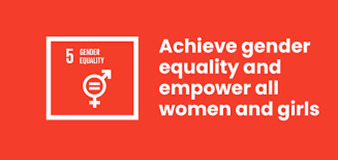
Figure 2: SDG 5 (Taken from Global Goals, 2015).
With August being ‘Women’s Month’ in South Africa, I’m shedding tears when I say August continues to be a distressing period with one woman being raped every 3 hours! I was horrified to learn that 10 818 women were raped in the first quarter of 2022 in this country (Govender, 2023).
So, what role do I play as an occupational therapist in addressing this conundrum?
I aim to challenge societal constructs that have confined women to pre-determined roles. Guided by SDG 5, I pledge to advocate for inclusivity and social justice for women. Working in the community has opened my eyes to the true nature of the unjust experiences of women and has had a massive impact on my personal growth. Workshops and awareness campaigns driven by OTs, conducted in multiple languages should be able to reach the rural outskirts and informal settlements to those who need to hear it. Women can be empowered to make informed choices about sexual relationships with the knowledge of reproductive health and family planning. Programs that enhance the economic power of women such as promoting skill development, vocational training, and entrepreneurship opportunities are some of the many things we as OTs can do.
In partnership with NGOs such as People Opposing Women Abuse (POWA, 2015), I aim to offer counseling and support to women facing gender-based violence, helping them rebuild their lives and gain independence. Talks on gender equality should start at a school level. As OTs, we must present on such platforms in suburban and rural schools equally. Through my work, I hope to provide not only physical healing, but also a safe space where self-worth flourishes.

Figure 3: Women must speak about violence (Taken from POWA, 2015).
In grasping that education is the cornerstone of growth and empowerment, I want to place focus on SDG 4 (Quality Education). Unfortunately, in contemporary South Africa, three aspects of education remain prominent: low quality, high inequality, and deep segregation. This too has its roots in the horrors of apartheid and the Bantu Education Act of 1953 (Anderson, 2020). As an occupational therapist, I want to work towards the goal of quality education, by promoting inclusive and empowering learning environments. Through tailored interventions, I would collaborate with teachers, families, and the community to support these students that may fall under the radar due to classrooms brimmed to the top with students. By addressing barriers to learning, advocating for students, and enhancing fine and gross motor skills, these are small steps that may lead to big changes in the lives of these children.
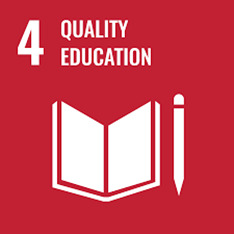
Figure 4: SDG 4 (Taken from Global Goals, 2018)
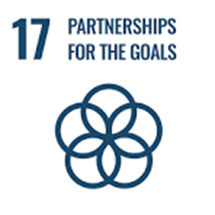
Figure 5: SDG 17 (Taken from Global Goals, 2018).
It is clear that the best therapist provides holistic intervention and values the time and effort of their clients. As OTs, we play a big role in collaborations so as to function optimally and provide the best therapy. In line with this, I aim to work toward SDG 17, “Partnerships to achieve the goal”. As I engage more and more in the community and in past experiences, it is apparent that the best form of intervention involves working with your client and not for your client. This means including them in the decision-making process in terms of goal setting personally and in terms of their therapy. On a broader level, the importance of collaboration and cooperation between different bodies of authority within the health sector is also necessary. In enhancing my work as an OT in training, collaborations with physiotherapists, audiologists, nurses, and social workers provide comprehensive treatment of a patient.
In a community filled with drug abuse, for instance, there is a huge role for us to play in rehabilitation medicine. OTs empower people with skills and strategies to promote independence and individuality, thus building the capacity of individuals to become active participants in society.

Figure 6: SDG 16 (Taken from Global Goals, 2018)
While the direct impact of SDG 16 may not be as immediately apparent as in some other SDGs, my journey has created a shift in my thoughts. I can have a meaningful influence in promoting peaceful and inclusive societies for sustainable development (SDG16). My heart is determined in its pursuit of justice and peace. Guided by SDG 16, the people we see in the community who have endured trauma, strife, and conflict are those I stand by and hope to provide support emotionally and physically.
Through my therapeutic interventions, I endeavor to mend wounded souls and provide a safe haven for healing. By collaborating with legal systems, I hope to amplify the voices of the vulnerable, ensuring that justice is not just a concept but a tangible reality. OTs address mental health issues arising from conflict or trauma, supporting individuals to manage their stress, anxiety, and depression. This promotes psychological healing and contributes to a more stable and peaceful society.
The collaboration with legal institutions can allow OTs to be the voice of reason for their clients for the needs and rights of individuals with disabilities or those who have experienced violence....So, you thought I would have to be a lawyer to offer legal advice?! This is the magic of occupational therapy. The opportunities for OT are endless and ever expanding...and not limited by what its known for.
In the beginning, I told you that I hope to take you on a journey, to delve deeper into what we know of SDGs... and now, I hope I have created a shift in your thoughts to see how OT has more to offer with its endless opportunities to create change. These SDGs serve as a guideline and a reminder that there is still much work to do but we are saying that we are ready to step up and face it.
In seventeen goals, a pledge to mend,
A world of challenges, we'll transcend.
Hand in hand, with purpose anew,
SDGs unite us, me as an OT, and forever you.
-Raeesa Modan, Occupational Therapist and Agent of Change.
Reference list
Anderson, R. B. (2020). “To Save a Soul”: Catholic Mission Schools, Apartheid, and the 1953 Bantu Education Act. Journal of Religious History, 44(2). https://doi.org/10.1111/1467-9809.12664
Global Goals. (2018). The Global Goals. The Global Goals; Project Everyone. Available on: https://www.globalgoals.org/ [Accessed on 8 August 2023].\
Govender I. Gender-based violence - An increasing epidemic in South Africa. S Afr Fam Pract (2004). 2023 Mar 31; 65(1):e1-e2. doi: 10.4102/safp.v65i1.5729. PMID: 37042525; PMCID: PMC10091185. (n.d.). Available at: https://www.ncbi.nlm.nih.gov/pmc/articles/PMC10091185/ [Accessed on 7 August 2023].
POWA. (2019). Powa.co.za. Available on: https://www.powa.co.za/POWA/ [Accessed on 8 August 2023].
United Nations. (2015). The 17 sustainable development goals. United Nations. Available on: https://sdgs.un.org/goals [Accessed on 6 August 2023].
0 notes
Text
Empowering lives: one injustice at a time by Raeesa Modan
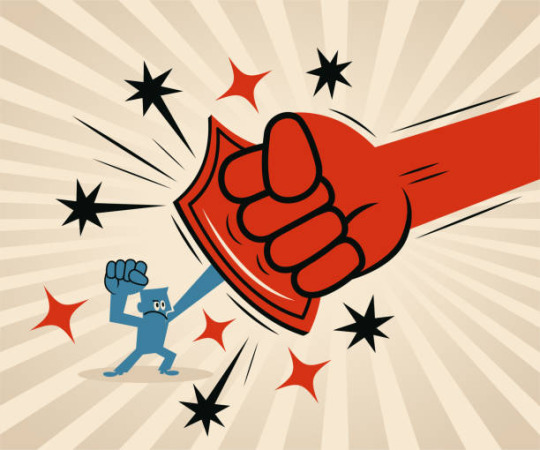
When I set out to become an occupational therapist, I had the notion of working in Johannesburg’s Northern Suburbs. Community service was going to be my only challenge but after that the dream would begin. I planned my consulting rooms…Think ‘healing’ chic. I thought that when my patients stepped into my rooms they would wonder if they accidentally stumbled into a luxury five-start resort. Then in my fourth year of study, I was introduced to what we call a community block and began to realize that the places that need us the most and more overpopulated communities in South Africa. It was a rude awakening. There was suddenly no time to smell the roses. I now question my role as an occupational therapist. I see the need to make myself act in a very different way in order to tackle the unyielding and unforgiving grip of poverty and its associated injustices. In my blog, I take you on a journey where we explore the potential of occupational therapy in addressing social injustices to bring about positive change. Join me on this voyage as we dig into ways occupational therapy can be the hope we need with regard to informal settlements, people with disabilities, and poor education to name a few.
Now I was one of those complacent South Africans who accepted informal settlements as just another development but as I advanced in my OT studies I realized how these areas signify economic segregation that started in the apartheid era. People cannot afford basic health care hence their secondary needs are not met. The South African healthcare system has only begun to establish universal health coverage that will ensure accessible, affordable, and acceptable access to patients (De Villiers, 2021). Addressing hygiene, disease prevention, and maternal and child health can be covered by occupational therapists by means of providing health education programs. The stress and trauma associated with living in these challenging conditions lead to many mental health conditions. The general perception, which I must admit was also mine, is that the work of an occupational therapist is confined to physical rehabilitation and pediatric development. But we play a big role in mental health.
Occupational therapists can offer culturally and gender-sensitive mental health support, advocate for mental health services at local day clinics, and also actively engage in community-based interventions to promote psychological health.
A huge obstacle in the densely populated informal settlements remains unemployment (Huchzermeyer, 2003). The facilitation of workshops and training sessions that equip people with essential skills for livelihoods, such as crafts using their hands, sewing and even gardening are solution-based approaches that occupational therapists such as myself, need to breathe into action. These can translate into self-serving business development with the creation of more employment as seen below the image of a Squalor in an informal settlement. Apart from focusing on adults, we also have the capacity to interact with urban planners and provide suggestions for developing parks and recreational areas.
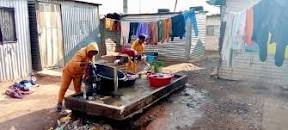
Another injustice seen is with regard to people with disabilities. In the case of disabilities in children, early detection is crucial in ensuring they receive rehabilitation and treatment. According to UNICEF (2001), early detection is not a priority for disabled children in South Africa and there is currently no national screening program being implemented. As I have ventured through my course, I see more and more children entering mainstream school without their disability being diagnosed and addressed. A more horrifying revelation by Philipott and McLaren (2011) was the confirmation that several doctors go to the lengths of giving false assurances to parents that their children ‘would be fine’. Do you agree with me that this is a violation of the Hippocratic Oath? Don’t these little ‘flowers of paradise’ deserve to get the help they cannot ask for? We can speak for them as a collaborative effort amongst occupational therapists and government agencies to drive systemic changes to protect the rights of those who do not have the ability to do so. Individualized support for students with disabilities can be provided by occupational therapists to accommodate these learners in participating in the classroom.
I want to touch on what I see as the biggest social injustice in South Africa…Education. Due to its long legacy of colonialism and apartheid, the ongoing inequalities have marginalized communities.
Although there has been significant progress since apartheid, some areas, like Limpopo, still hasn’t made much progress (Badat and Sayed, 2014). Learning needs differ based on home language, economics, etc. In the communities such as Kenville and Mariannridge, we see similar issues in the lack of awareness or in some cases denial of parents and teachers that these children require additional help. In collaborating with educators, we may offer assistance in terms of the design of classrooms to accommodate diverse learning needs. For example, suggesting flexible seating arrangements and sensory-friendly learning aspects to create an inclusive environment where all students, irrespective of where they come from, can play the field on the same level.
Many parents of school-going children are trapped in their inability to support their child’s learning. This stems from the language barrier, as well as the parents having minimal school training as well. We can help by providing training to parents and caregivers on strategies to help and support their children, be it physical, mental or social. This collaboration will extend therapeutic interventions beyond the immediate learning environment of the school classroom.
In a world where systemic injustices have a firm foothold, the role of occupational therapy transcends traditional boundaries. Our profession is evolving and it is fast becoming the key we need to dismantling and finding solutions to injustices. For now I dream a dream… I’m not in that plush office wearing moccasins by Gucci in blue… I’ll be running around Kenville and Cator Manor reshaping the very fabric of society. I promise you’ll enjoy the ride!
Reference List
Clark, F., Carlson, M., Zemke, R., Frank, G., Patterson, K., Ennevor, B. L., Rankin-Martinez, A., Hobson, L., Crandall, J., Mandel, D., & Lipson, L. (1996). Life Domains and Adaptive Strategies of a Group of Low-Income, Well Older Adults. American Journal of Occupational Therapy, 50(2), 99–108. https://doi.org/10.5014/ajot.50.2.99
De Villiers, K. (2021). Bridging the health inequality gap: an examination of South Africa’s social innovation in health landscape. Infect Dis Poverty 10, 19. Available at: [Accessed on 3 August 2023].
Gibbs, A., Jewkes, R., Willan, S., & Washington, L. (2018). Associations between poverty, mental health and substance use, gender power, and intimate partner violence amongst young (18-30) women and men in urban informal settlements in South Africa: A cross sectional study and structural equation model. PLOS ONE, 13(10), e0204956.
Huchzermeyer, M. (2003). A legacy of control? The capital subsidy for housing, and informal settlement intervention in South Africa. International Journal of Urban and Regional Research, 27(3), 591–612. https://doi.org/10.1111/1468-2427.00468
Children with Disabilities in South Africa. (2001). Available on:
in%20South-Africa-2001-11-situation-analysis.pdf. [Accessed 4 August 2023]
Philpott, S. & McLaren, P. (2011) Hearing the Voices of Children and Caregivers: Situation Analysis of Children with Disabilities in South Africa. Pretoria: Department of Social Development/UNICEF.
410+ Fighting Injustice Illustrations, Royalty-Free Vector Graphics & Clip Art - iStock [Internet]. www.istockphoto.com. [cited 2023 Aug 4]. Available from: https://www.istockphoto.com/illustrations/fighting-injustice
0 notes
Text
Why maternal and child health is important to society? And how this has implications for Occupational Therapy practice, particularly at a community level, and life within the context I am working in.
In an ideal world, every child born to every mother would be birthed in healthy conditions pre- and postnatally. With every mother having readily accessible health care for their children and their own health. Right? Wrong. Well, at least that’s the case for most third world and developing countries where pressing matters such as the basic needs and rights of our people are discarded by many horrors and truths of our country.
I apologize for the sullen intro but sometimes the harsh reality and facts we face are eye-opening and may be the confrontation we need to surge a change in your mindset going forward.
(Mkhize-Kwitshana, 2014) did an overview of maternal, neonatal, and child deaths in South Africa in 2014 with the main causes being HIV and AIDS, pregnancy and childbirth complications, neonatal illness, and malnutrition. Nine years later, these causes are very much prevalent but what has been done?
Women do what they know how to do. Persevere. Their lives still go on, the mouths to feed, fees to pay, and strength and energy needed to be given will come from the mother in any way possible. It is for those who have been equipped with the skills to bring the services to the people.
It is not to say that we can change the lives of everyone we try to help because the learned helplessness of some people may never change. You can lead a horse to water, but you can’t make it drink.
But it is then left to people like us, the advocates, the voice, the occupational therapists with heart and soul who feel for the people they are seeing. In the community, it is just another day when we see a mother who is heavily pregnant, walking from her home with her 7-year-old son to the clinic for the flu because there was no one else to do it. While our hearts are sore, our motivation to do more is fueled by this.
It can involve doing home visits, providing support emotional and physical, and showing the people that we care, and that we are here for those mothers and their children to let us in.
(Laframboise, 2019) wrote an insightful blog pertaining to single motherhood in our country stating the harsh fact that half of the children in our country grow up in fatherless households with the number only increasing. No wonder mothers don’t want to accept help as all they’ve ever known is I have to do this on my own.
But they are not alone, we are here to be the helping hand and can only hope they will take it.
A resource that may be beneficial include:
The John Langalibalele Dube Institute at UKZN aims to provide skills and employment to rural women and youth in KZN. To see more, please follow the link: https://communityengagement.ukzn.ac.za/news/skills-training-empowers-rural-women-and-youth/
References
Laframboise, N. (2019, September 6). The Borgen Project. Retrieved from Single Motherhood in South Africa: https://borgenproject.org/single-motherhood-in-south-africa/
Mkhize-Kwitshana, M. H. (2014). National Library of Medicine. Retrieved from Overview of Maternal, Neonatal and Child Deaths in South Africa: Challenges, Opportunities, Progress and Future Prospects: https://www.ncbi.nlm.nih.gov/pmc/articles/PMC4948143/
University of KwaZulu-Natal. (n.d.). Retrieved from Skills Training Empowers Rural Women and Youth: https://communityengagement.ukzn.ac.za/news/skills-training-empowers-rural-women-and-youth/



0 notes
Text
ADVICE TO MY FUTURE SELF AS A PERSON AND AS AN OT
I don’t recognize the person staring back at me in the mirror. The little girl I once knew to be so outgoing and full of life seems long gone. In her place is a stranger who has yet to discover herself and her purpose in life. This letter is for her from her future self. To read when she is lost, confused, or struggling to find herself and her ambitions.
Dear future self,
If you are reading this, it means you are going through a difficult period in your life and need little reassurance and some guidance. Well, you’ve come to the right place. I am your future self, and therefore, am the most optimistic version of you as I have been through every single thing that you have gone through, and guess what? I’m still here. You’re still here. That in itself is a huge accomplishment and deserves to be treated like one.
This a reminder to you that life is not easy. There will always be hardships and obstacles to overcome, and at the time, it may seem like the hardest thing in the world. I am here to tell you that it is not. When you look back, you will see how minuscule these obstacles were in the grand scheme of life. The hardships are just the stepping stones that bring us closer to our life goals and ambitions.
At times, life gets busy, and we forget to take time to care for ourselves and grow into the person we want to be. So, I would like to give a few tips that I know would help. In the extensive time I have shared with you, I know what works and what doesn’t. Here are some reminders of what helps you to keep going:
Spending time with loved ones. Family is something you value and is pretty important to you. Life tends to pass everyone by and before you know it, people have full-time jobs, families to care for, and opportunities that take them across the world. This is why its necessary to make time for family, cherish the moments you share and find a way to interact to make the most of it while you can.
Taking more time and effort into your health. Our health is something we take for granted and only try to make changes when something goes wrong. It is especially difficult to find time to exercise when work and school take over most of our time. Making time to do so will have many pros some of which include improving your overall health and enhancing one’s mood which consequently improves your mental health.
Taking time for yourself. It is good to prioritize work and the things that we do on a daily basis as we all have responsibilities to uphold. Finding time to help others is great but it is important to not neglect ourselves and our own needs. Having days where you sleep in, going for a spa day or even finding a new hobby are all small additions that you can add into your life which will have a massive impact on improving your mental well-being.
A special message to the OT inside of you; never assume that you have reached your learning capacity. There are always new and improved methods and discoveries in this advancing world of ours, so it is important to never limit yourself from the opportunities out there. Being open to learning new things, working with others, and facing challenges is what makes you a good OT. Always remain confident in your abilities and trust your instincts. Accept challenges with an open mind and heart and you will be sure to succeed.
I hope this was helpful and gives you the push you needed. My only wish is for you to become the best version of yourself. In the meantime, be true to yourself and take care.
Yours truly,
Your future self.


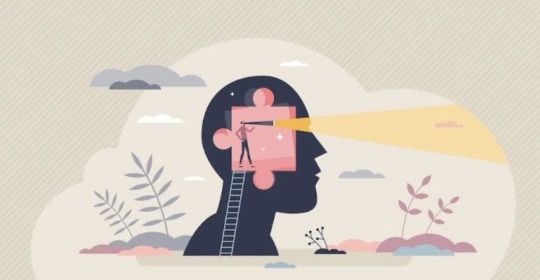


9 notes
·
View notes
Text
Occupational barriers to mental health in South Africa
Mental health in the past was most often overlooked or seen as insignificant in society. Possible reasons for this may be associated with stigma, the fact that it is not as concrete as a physical illness, or the possibility that people may not be aware that they even have a mental illness and need to seek help.
“Currently, mental health awareness and support are in a better position than it ever has been. With decreasing stigmas surrounding mental illness, higher levels, and availability of support services, and restructuring of various approaches to mental health, the area is in a strong position looking forward.” (Williamson, 2020)
Although changes are being made toward promoting mental health awareness, I believe there are many underlying factors, within the South African context, that are still preventing or delaying people from seeking treatment. Some of these factors include stigma, cultural beliefs, socio-economic status, access to health care, and lack of knowledge.
“South Africa, the largest country in SACU, is the most unequal country in the world, ranking first among 164 countries in the World Bank’s global poverty database.” (Bank, 2022) As our country has one of the greatest inequality levels with regard to wealth, I will go focus on the socioeconomic status of people in South Africa, and how this impedes access to health care.
One of the factors contributing to late or lack of intervention is people’s socioeconomic status. Socioeconomic status refers to a way of categorizing people based on underlying factors such as education, income, and the type of job they have. Research suggests that people with lower socioeconomic status usually have less access to financial, educational, social, and health resources than those with a higher socioeconomic status. (socioeconomic status, n.d.)
The imbalance between the socio-economic groups in South Africa is one of the widest in the world; “In 2018, the World Bank released a report on poverty and inequality which found that the top one percent of South Africans control 70.9% of the country’s wealth while 60% of the country’s population collectively controls only seven percent of the country’s assets.” (Villiers, 2021). The disparity between the incomes which people receive will classify their status. Due to the marginal difference, it is apparent that those in middle and lower socioeconomic status are obliged to make use of public hospitals as appose to receiving private care. This is the more affordable option between the two, however, this increases the burden on the public sector which results in high volumes of people in need of care but a lack of resources and long wait periods making it unfeasible for some. Therefore, some people may choose to not receive care or prolong the matter due to the above-mentioned issues. The private sector has a better-skilled labour force due to the greater opportunities that are available within this sector. Personnel is less stressed and have better working conditions which allow them to deliver a higher level of care. This, however, is only available to the select few who are able to afford it as it is still expensive.
In terms of healthcare seeking, “Relatively wealthy households were more likely to be located within a 10 km radius of a healthcare facility in comparison to relatively poorer households”. (Gordon, 2020). This indicates that healthcare facilities were often easily accessible in areas with people of high economic status. As a result, those of lower economic status may find it difficult to obtain healthcare due to long distances and high transportation costs. Distance from the treatment facility may make it difficult for people to seek a solution to their problems.
In hopes to improve our own context, healthcare professionals may require more insight into the people of our country and the consequent reasons they may not receive treatment. This gives us a better understanding and may help to take the necessary steps toward improving the issues we face.







#mental health awareness#stigma#socio economic status#ineqaulity#south africa#occupational therapy#wealth inequality#mental health
0 notes
Text
COVID- Trick or treat – how has COVID impacted on the mental health of people and my reflections on returning to normal.
Aah Covid-19 … what a roller-coaster of emotions it has put us through…honestly feels like it’s been going on for a decade but in reality, it’s only been over 2 years. Hard to believe I know. The impact it had on people globally, however, will be long-lasting. Never in my life did I imagine myself living through a pandemic but the fact that I’m still here is something to be grateful for.
The statement that Covid19 had a huge impact on everyone’s lives is true, however, I feel it may have not been all negative. Sounds ridiculous but there is method to my madness trust me. Thinking of all the different types of people there are similar to a bag full of candy that a little kid gets on Halloween. You will get some that are the same, others that come in flavours, and some completely different in taste and nature. In the same way, each person has their own unique personality and opinions which caused a variety of emotions during the early stages of the Covid pandemic.
It was a mixed bag for some, Covid and its restrictions that followed implemented working from home. For those who are socially introverted, this was a piece of cake. Being able to work from home and not engage in the social interactions expected in a workplace helped reduce anxiety and increase productivity.
Research suggests another pro of working from home is the “Better work/life balance - working from home can help employees improve their work-life balance e.g., staff that would have had to commute will now be able to use that time for themselves giving the basis for a better work-life balance.” (Advantages and disadvantages of employees working at home, n.d.) This further promotes a better mental state and reduces the stress levels associated with work.
On the other hand, the pandemic was crippling for many in terms of mental health. Some people rely on structure and familiarity and the drastic changes in daily routines associated with Covid19 together with self-isolation had caused major depression and other severe mental disorders in people. I witnessed it happen to people around me as well. Covid was able to turn people who were once fully functional adults with no known mental disorders, into people with anxiety and stress and unable to cope with even simple daily tasks.
As the Coronavirus is an illness with mainly physical symptoms, the mental aspects, as a result, are often overlooked. Those who were not even affected by the virus may have still developed mental disorders and were unable to get the help they needed. Sometimes, the reason people don’t reach out for help is that they don’t even they are in that state or what the signs of it actually are. So here are some early signs of poor mental health:
poor concentration
finding it hard to make decisions
feeling less interested in day-to-day activities
feeling overwhelmed by things
tiredness and lack of energy
sleeping more or less
talking less and avoiding social activities
finding it difficult to control your emotions
irritability and short temper
(Bupa, n.d.)
It is important that once we are aware of these things, we can combat them through professional help or even by talking to family and friends about it. We are slowly returning to normal in terms of fewer restrictions in place and more opportunities for social gatherings. While it is necessary to take precautions and be mindful of others, I feel that basic human interaction is essential to all humans and can help maintain good mental health. Someone once told me that talking to others is a basic human need and I have to say I wholly agree. Talking to someone, sometimes even a stranger can help lift a weight we didn’t know we were carrying and make the day a little easier and that’s something we all need. So the takeaway is to always treat people with kindness as you never know what someone is actually going through.




0 notes
Text
Standing on the edge of becoming an OT – reflections on my journey thus far
In my opinion, standing on the edge of becoming an OT feels pretty similar to standing at the edge of a cliff. Looking out on the horizon and seeing fourth year so close I could almost taste it. I am in quite a predicament. Do I jump headfirst into the unknown to my premature death? Or cling to the ground I know, safe and comforting. Two extreme options yes, but sometimes that’s how my brain works. In reality, there is a third option, but ill get to that a bit later. Let us take a stroll down memory lane, shall we?
Looking back at the past few years, I would be lying if I said it was easy. The countless late nights, back pain, tears, and failed modules would beg to differ. You might think this all sounds pretty morbid but there is a happy ending to this story. To be able to make it as a student, the key things I think you would need are 1. good mental health 2. motivation or passion, and 3. a good support system.
“Mental health disorders are common among students, with a higher incidence than in the general population… Students spend a large percentage of time engaged in academic pursuits at university, and poor academic performance can harm their mental health.” (Factors That Predispose Undergraduates to Mental Issues: A Cumulative Literature Review for Future Research Perspectives, 2022)
Looking at research and finding out there are others who face the same problems as you bring an odd sense of comfort in me. Feeling heard and seen brings a vindication I didn’t know I needed but wholly welcome. My mental health may have not been at its best but my support system which consists of my friends and family was my ‘rock’ in a sense as they anchored me from floating away with my never-ending anxious thoughts. I learned about the importance of self-care; it would be ironic for an OT student to promote occupational imbalance while neglecting to do the same. I call them ‘break days’ as I try to break away from the mundane routine that is my life and do something different. Going for coffee with friends, painting or even an impromptu picnic always helped refresh the mind and destress.
“Anyone who spends their entire workday taking care of other people can begin to get a little burned out. And this includes therapists. If you find that you are feeling exhausted all the time or that your days are blending into each other or that you no longer have a passion for your work, take time to take care of yourself. You know how to advise your patients to take care of themselves; now put that into practice in your own life.” by Kathleen Ponce, OTR/L (Inspiration and Encouragement, n.d.)
During the tough times, you know, when you feel like pulling your hair out and the self-doubt takes over your brain, it is the passion- the motivation which keep you going. My motivation to be an OT is not so much of a what but a who. My older sister was born with microcephaly which is a lifelong condition and will always need some form of care no matter how old she gets. I first learned of Occupational Therapy through her and saw the benefits as she grew older which invoked curiosity in me, but I only truly appreciated the beauty of OT when I began studying it. Knowing that I can help my sister in a way that uplifts and promotes her well-being makes me happy. Having the knowledge and skills to help improve people’s lives is an extremely rewarding feeling that I wish to experience as I continue this journey.
A combination of all three of those things is what has brought me this far in my studying career and what I will keep in my parachute as take the leap of faith into my fourth year and the working world using the skills and knowledge acquired to guide me through the chaos.




1 note
·
View note